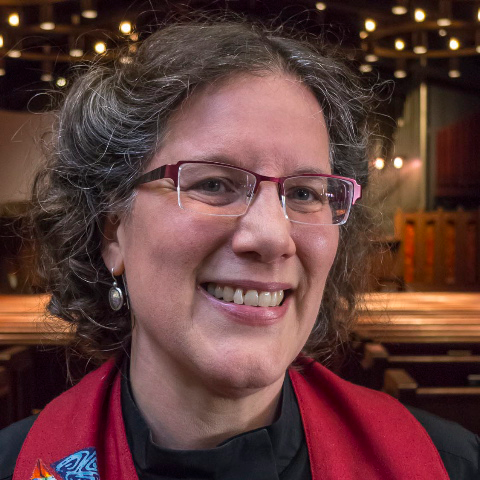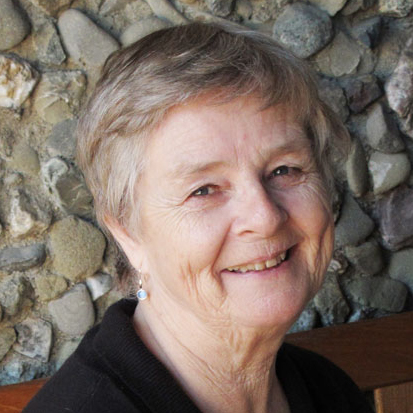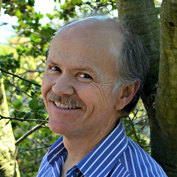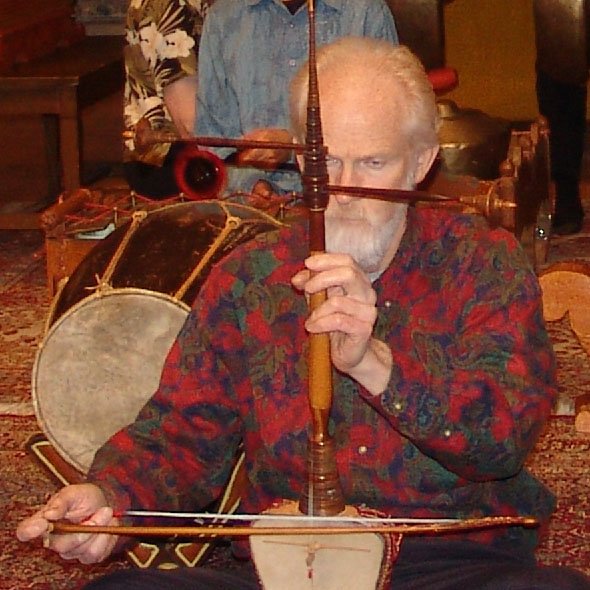{podcast_episode 143}
Good morning. I’m so glad to be here with you all this morning. The worship theme of this month is “teachings” and when Barbara asked me to preach this morning, it was with the thought that I might preach on the teachings of Christianity as I understand them as a UU Christian. This passage that Kay just read (1 Corinthians 13:1-13) is one of my favorites, and not just because it’s been said at almost every wedding celebration I’ve been to. It’s one of my favorites because I think it references the key teachings of Christianity: faith, hope, and love. I’d like to talk about each one of these separately. So I’ll speak briefly three separate times, with a little time for piano music and reflection in between each one.
Faith
We start with faith. Faith is a tough one these days. I am haunted most days when I read the news. This week, we read about a young woman abducted, several local murders, and continuing wars. The world weighs heavily on me.
In the Bible, there is a time when Jesus is distraught. It is close to the time when he knows he is going to be betrayed, and he takes a few of his closest disciples with him to a garden to pray. He tells them, “I am so sad I feel as though I am dying. Stay here and keep awake with me.” After praying, he returns to his disciples and finds them asleep, and he is frustrated. Again he says to them, “Stay awake with me.”[1]
I don’t believe that we are asked to understand it all. There is a lot I do not understand about the world these days. How does anyone understand child abduction or murder. This story about Jesus is, to me, one about faith. That what is most important, in the face of the world’s problems, is to stay awake. Not to give up. We are not free to run away, turn our backs, fall asleep, or throw up our hands.
Rather, we are to know and accept that there is much we don’t understand. Did you know that butterflies migrate thousands of miles and still know where they’re going? How do we explain that? I get lost every time I drive through San Francisco.
Working as a hospital chaplain, I see so much I can’t explain. While most of us like to think of medicine as black-and-white, truth is most of the time it’s grey. Why do some treatments work for some people but not others. Why do children get cancer. Why does a heart suddenly stop beating.
Faith is not thinking that you know how it’s all going to turn out. No one knows that. Some people would say that having faith in God means trusting God’s master plan. But for me, in Christianity as I understand it and live it, faith is not believing in some sort of mysterious master plan, or a God who has everything planned out. It is the belief that there is good in this world, and seeing the possibility that this good, this love, is strong enough to triumph over all else if we will stay awake. In the words of Martin Luther King Jr, who was paraphrasing Unitarian minister Theodore Parker, “the arc of the moral universe is long, but it bends toward justice.” In the words of Mahatma Gandhi, “When I despair, I remember that all through history the way of truth and love has always won. There have been tyrants, and murderers, and for a time, they can seem invincible, but in the end they always fall. Think of it – always.”
To have faith is to know this, so that even in those moments when we lose track of it – those moments when you are crying, lost, curled up in a ball, shaking, fearful, asking why – from those darkest moments we find the way back to knowing that God is still there, that Love is still there. This is the primary message of Christianity for me – that we could cause such suffering to Jesus, hang him on a cross, torture him and kill him, and yet, despite this, Love prevailed. Whether you believe in the resurrection, or simply in the fact that Jesus’ teachings about loving your neighbor have continued to be preached to millions of people thousands of years after his death, either way we see that love cannot be killed, but continues on and endures. Faith is to know this, and to live by it.
Hope
We come next to the second topic of hope. What is hope, and where do we find it?
I was at a health care conference recently where I heard a presentation by Dr. David Sobel, a Kaiser doctor and researcher. He quoted a study about nursing home patients. In this study, they had two groups of subjects. The first group of nursing home residents was asked if they would like to have a plant in their room. If so, they chose the plant from a collection and then took on the responsibility of caring for it. The second group of residents was told that they would have a plant in their room, and that while they would admire and enjoy it, the staff would take care of it for them. After a matter of weeks, the researchers found that residents who had responsibility for their plant reported nearly double an increase in happiness compared to the residents who simply had a plant added to their room. They also found that members of the group with responsibility for their plants were spending more time out of their rooms, interacting with the staff, visiting with other patients, and attending activities.[2]
I also heard of another study. In this study, researchers studied 34 students at the University of Virginia, taking them to the base of a steep hill and fitting them with a weighted backpack. The students were then asked to estimate the steepness of the hill. Some participants stood next to friends during the exercise, while others were alone. The students who stood with friends gave lower estimates of the steepness of the hill. And the longer the friends had known each other, the less steep the hill appeared.[3]
And, finally, one more example: A woman named Jennifer Arnold was featured in a PBS film titled, “Through A Dog’s Eyes.” The documentary told the story of her organization, Canine Assistants, which is involved in the training of service dogs and matching them with people in need. Ms. Arnold talks about a young child who told his mother that he didn’t want to live any more. Sometime during the camp that orients and matches dog to human, Ms. Arnold noticed the child’s mother crying. Ms. Arnold thought they had failed. But it was the opposite. The mother had once again asked the child if he still wanted to die, and he had said, “I can’t leave my dog.”[4]
For me, one way Christianity and the teachings of the Bible provide hope is by reminding us that we are not alone, that fundamentally our lives are tied up with one another and with the whole of the living world, and that ultimately we do not live for ourselves, but for one another. Some would say that Christianity provides hope by promising a heavenly reward, something better coming after death. But the message of hope that I see in Christianity is not that something else is possible after death, but that something else is possible right here, if we can recognize our interconnectedness.
Christians talk about being the hands and feet of God – that God is present in this world through the things that each one of us do. 1 Corinthians 12, verses 21-26 read, “The eye cannot say to the hand, “I don’t need you!” And the head cannot say to the feet, “I don’t need you!” On the contrary, those parts of the body that seem to be weaker are indispensable, and the parts that we think are less honorable we treat with special honor. And the parts that are not presentable are treated with special modesty, while our presentable parts need no special treatment. But God has combined the members of the body and has given greater honor to the parts that lacked it, so that there should be no division in the body, but that its parts should have equal concern for each other. If one part suffers, every part suffers with it; if one part is honored, every part rejoices with it.”
The words of the Bible encourage us to open ourselves to connectedness, and thereby find hope in houseplants, in service dogs, in one another – in the reality that none of us are alone.
Love
And so we come to the topic of love, what the reading from 1 Corinthians is most about. The passage from 1 Corinthians is one of the most oft-quoted passages from the Bible. Why is that? I believe it is because we are created to love, that it is our nature and our purpose, and the pull within us, that which I refer to as God, is always pulling us toward more love. In the Bible, there are no less than ten separate passages telling us to love one another. Jesus says plainly over and over again that love is more important than wealth, power, status, stability, being right or winning.
Lutheran pastor Dennis Fakes offers this exercise:
- Name the ten wealthiest people in the world.
- Name the last ten Heisman trophy winners.
- Name the last ten winners of the Miss America contest.
- Name eight people who have won the Nobel or Pulitzer Prize.
- How about the last ten Academy Award winners for best picture, or the last decade’s worth of World Series winners?
How did you do? I didn’t do very well either. With the exception of those of you who are trivia experts, none of us remember the headliners of yesterday too well. These are no second-rate achievers – they are the best in their fields. But the applause dies. Awards tarnish. Achievements are forgotten. Accolades and certificates are buried with their owners.
Here’s the second part of his quiz. See how you do on this one:
- Think of three people you enjoy spending time with.
- Name ten people who have taught you something worthwhile.
- List a few teachers who aided your journey through school.
- Name five friends who have helped you in a difficult time.
Was this part easier for you? Me too. The lesson: What makes the most difference in our lives is not the most credentials, the most money, or the most awards. It is care.[5] It is love.
Jesus tells us that love is the most important thing in life. He says all of Christian teaching can be summed up in two directives: Love God with all your heart, soul, and mind, and love your neighbor as yourself.
He disregarded social customs such as who should talk with who, and who was superior to whom, and in exchange gave everyone love, socializing with prostitutes, with lepers, with the oppressed.
Jesus calls us not only to love, but to radical love. He tells us – contrary to how we have created our systems of power and status – that the last will be first, that blessed are the meek and the merciful.
When asked by his disciples who he is referring to as our neighbors, Jesus answers with the story of the Good Samaritan. In those days, the Samaritans and the Jews had been enemies for hundreds of years. Yet it was the Samaritan who stopped to help the Jewish man who had been robbed and beaten on the side of the road. He gave of his own time and money to help a man who was not only a stranger, but also an enemy. At the end of the parable, Jesus tells us, “Go and do likewise.” We must love those people who are the hardest for us to love.
That’s a tall order. Christianity continually challenges me to let go of my fears, my ego, and my material goods in order to more fully love. I fail a lot of the time, but those times when I manage to succeed are some of the most rewarding moments of my life. And even in those moments when I fail, I know that it is okay, that I am forgiven, that I can and will keep trying. For me, as a Christian, I know I cannot fall outside of God’s love, and I remember again the words we heard this morning: that love is patient and love is kind. It always protects, always trusts, always hopes, always perseveres.[6] In the words of Mahatma Gandhi, “Jesus lived and died in vain if He did not teach us to regulate the whole of life by the eternal law of love.”[7]
1 Matthew 26:36-45
2 Langer & Rodin (1976). The effects of choice and enhanced personal responsibility for the aged: A field experiment in an institutional setting. Journal of Personality and Social Psychology, Vol 34(2): 191-198.
3 Parker-Pope, Tara, quoted in The New York Times, April 20, 2009.
4 http://www.pbs.org/dogs-eyes/#2. Accessed August 10, 2013.
5Fakes, Dennis. G.R.A.C.E.: The Essence of Spirituality, iUniverse Inc: 2002, p.96.
6 I Corinthians 13:7-8
7 http://www.bemagazine.org/?p=6002. Accessed August 10, 2013.
Copyright © 2013, Rev. Lisa Sargent. All Rights Reserved.

















